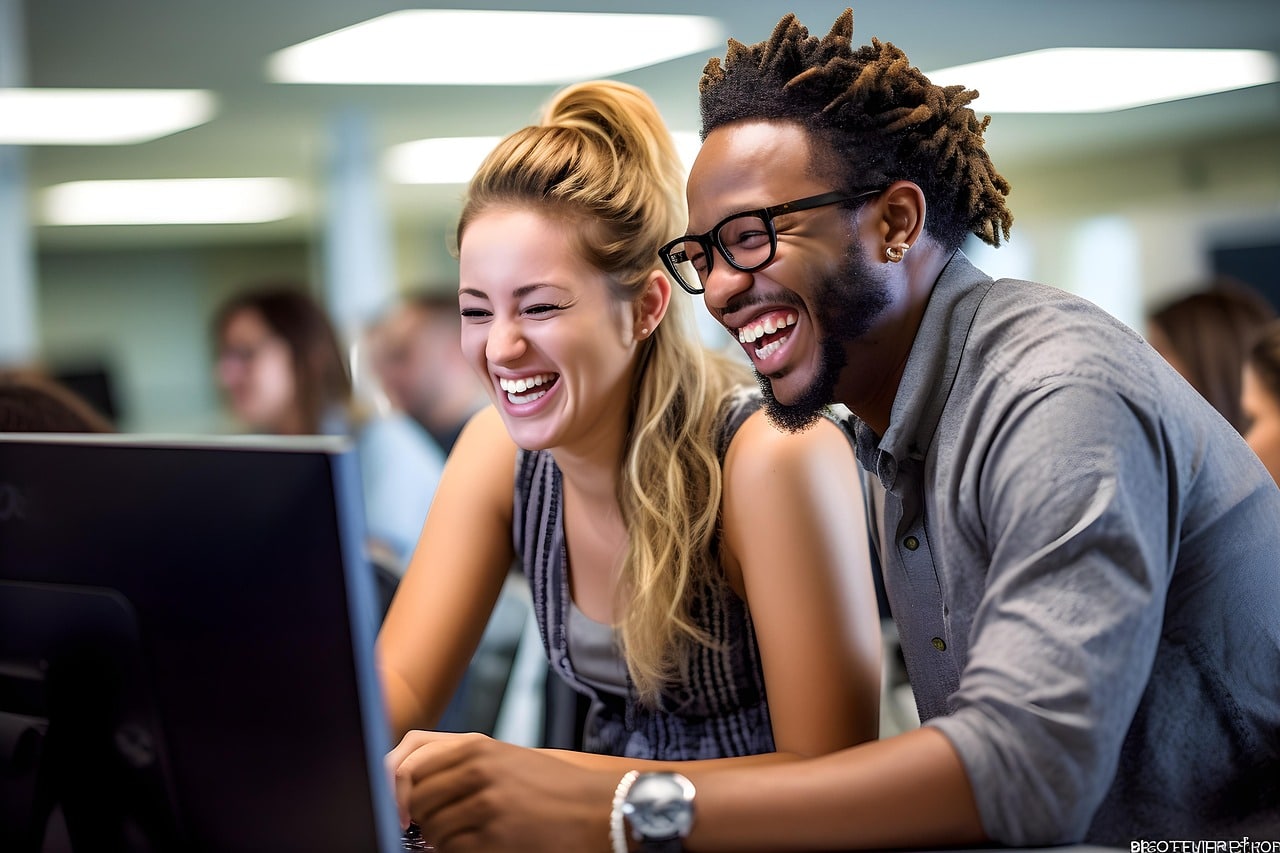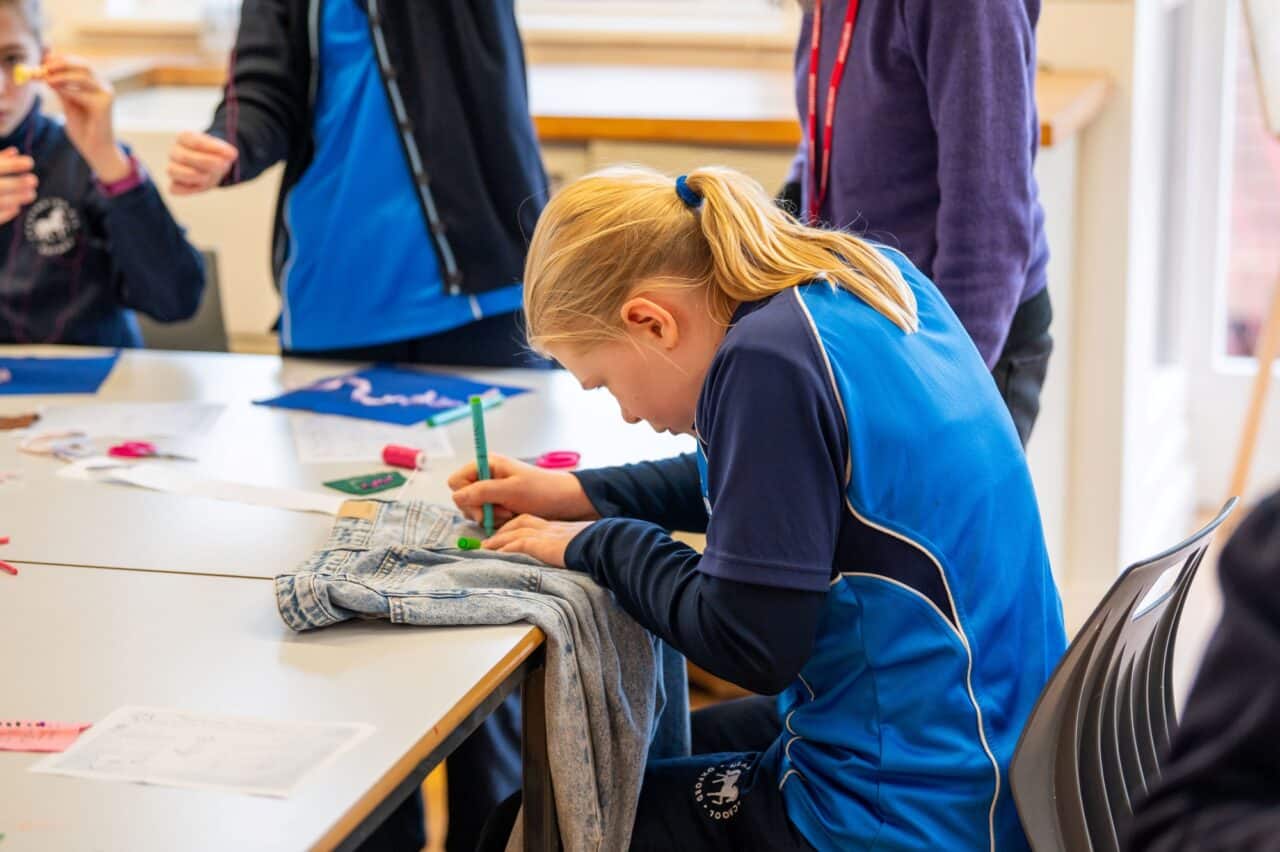The importance of socialisation
Prioritising socialisation in a post-pandemic world
I love my office. It isn’t the room itself – pleasant enough though it is but the location. Through my large windows I have a glimpse of the outdoor area and can see and hear the children playing every day. It’s a heartwarming sound, a sound that brings a smile to my face regardless of what I’m doing on my ‘to do list’.
There is so much benefit in children playing together. There’s the happiness of being with others, enjoying others’ company, sharing new experiences together, receiving support and advice when feeling down and having fun. All the research shows that play provides huge developmental and social benefits and sets young people up to better deal with challenges in the future. However, as we set about reintroducing usual routines and reestablishing ourselves as an ‘in-person’ school community after so much pandemic-related disruption, we realised that we had a huge job to do to restore the children’s confidence in building and maintaining friendships.
Some of the children were less prepared to take a risk with friendships, less prepared to welcome others into their group for fear of changing the dynamics. This has meant it has taken some new joiners longer to become integrated whereas usually, girls settle in quickly. Those who have formed strong bonds have been more exclusive with each other, less prepared to let ‘new’ people into their friendships, perhaps for fear of diluting or even losing a relationship they have managed to establish and cling to under the most difficult of circumstances. We’ve also had a lot more falling outs at break times over very minor issues which in the past, the children would have been able to sort out themselves.
They were desperate to have friends in the flesh, to run and climb trees together, throw and catch a ball, play hide and seek.
None of this is surprising given the last couple of years they have had. These behaviours are indicative of some of the very real needs these children have which they haven’t been able to meet in a normal and natural way. They were desperate to have friends in the flesh, to run and climb trees together, throw and catch a ball, play hide and seek. Not just someone to communicate with virtually as they had done recently.
There’s lots for us to do to make sure these wonderful young people re-emerge unscathed, strong and healthy. This includes reminding girls about our restorative justice approach to friendship issues. We’re effectively retraining the children on how to work on their friendships.
In response to the challenges our new girls have faced, we’re establishing a ‘Big Sister/Little Sister’ scheme next term to help with this. Each Little Sister will be attached to a Big Sister for all their time in the Prep School until they in turn become Big Sisters themselves. By everyone being involved in the system, we hope they will become invested in it and aspire to be the supportive and friendly Big Sister who was a role model to them.
We’re also getting the children used to talking to each other over lunch and remembering to listen to each other carefully and thoughtfully. With so many different competing dynamics – and so many confusing and changing restrictions to manage – understandably we’ve seen lunchtimes getting a little rowdier than we would like! We’ve introduced lunchtime superstar awards for good table manners/behaviour and we hope that by rewarding and modelling excellent behaviour during lunchtime, we’ll see swift improvements here.
There are lots of good things we already see from many of our children too, which we would like to inspire in those who are finding things more challenging. For example, there’s lots to learn from those who are able to self regulate their behaviour, understanding their own feelings and emotions and being able to manage them. This is a tricky quality to master but an essential one for navigating the complex world of human relationships! The girls who have the most positive relationships are empathetic towards others and really care, recognising their own and others’ strengths. We saw fantastic examples of this in the Yr 6 leavers’ assembly – it was wonderful to see the children celebrating each other and reminiscing together as they looked at photos of their earliest days in the School. They did a great job of making each other feel special (and indeed, they are all special). It’s also important for our girls to show tolerance towards children who are different – and that means different in any one of a myriad of diverse ways, whether that be in appearance, academic or sporting ability, cultural background or temperament. This may not mean becoming best friends – we certainly don’t dictate who should be friends with whom! – but it is so important to develop an understanding that people need to belong, not just fit in. On the whole we have a wonderful and welcoming community and our girls understand that everyone plays a part, but there is more we can do to make sure everyone has that sense of belonging. A lot of this is covered in PSHE and the children are very happy to discuss and reflect on their behaviour here.
Other really positive traits we encourage include being open to working with anyone. Lots of activities are planned to ensure we develop the girls’ collaborative skills. It’s no good us saying to the children at this age ‘find a partner’. As they get older we can do this more but with the proviso, think about who you work well with.
It is important to think of the key skills we draw on to develop friendship and this is something we focussed on over a term. We spent two weeks on key skills such as active listening, caring, sharing,helping and respecting others. We can’t just expect children to know how to do these things, it’s important to teach them.
So for active listening, drawing on the work we have been doing from Guy Claxton’s Building Learning Power, we came up with a few tips such as:
- Focus on the person and what they are saying
- Show them you’re listening by, for example, nodding your head,
- Don’t get distracted by other things around you
- Be quiet while the other person is talking
- Wait to ask a question or give comments to show others that you care about what they’re saying
We considered the importance of eye contact. On many occasions it’s important as it shows that we are giving the person our attention. However, on other occasions, sitting side by side may be less intense and more appropriate. We also considered how to maintain an open mind, not rushing into judgements about what someone is saying. There are so many skills involved in building relationships.
All of this runs alongside the development of learning characteristics such as collaboration. Again, these are essential skills which need to be taught and activities planned to provide opportunities for the children to grow in these areas.
There is plenty of research regarding the positive benefits of friendships. Friendships create a sense of belonging, promoting positive mental health and a better focus on learning. They can help children to learn to control their emotions and go some way to improve children’s academic performance. Many will bear witness to the impact a bad playtime experience has on a child’s performance in learning for the rest of the day, or beyond. Ask a child what they did at school that day and nine times out of ten, rather than relaying information about the innovative new Maths technique they learned, they will excitedly describe what happened at break or lunch time.
So, it’s key that we work with children to teach them the skills they need to initiate, grow and develop friendships and it has never been more important than now. Here’s to the playground with peals of laughter and nods of the head in empathetic understanding. I love my office.



